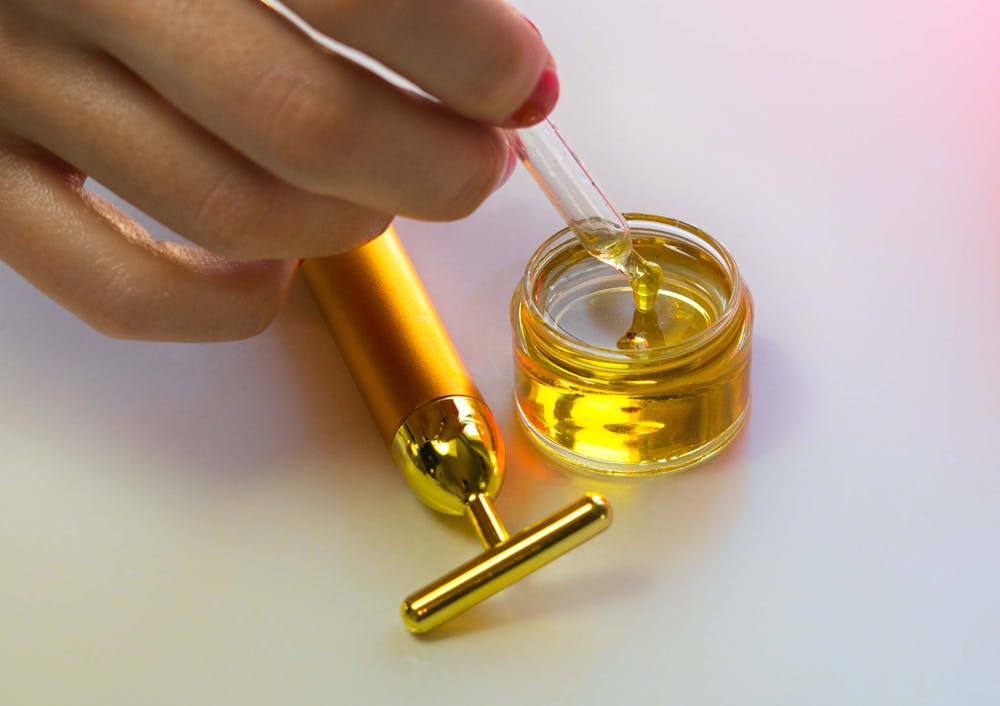Serums have quickly become a staple in skincare routines for their ability to deliver concentrated, targeted benefits. With their lightweight consistency and potent active ingredients, serums can tackle various skin concerns—from hydration to anti-aging—making them a powerhouse addition to your regimen.
This guide explores how serums work, their benefits, and why incorporating one into your routine can dramatically improve your skin’s health and appearance.
What Are Serums?
Serums are lightweight, fast-absorbing skincare products formulated with high concentrations of active ingredients. Unlike moisturizers, which primarily hydrate and protect the skin, serums penetrate deeper to address specific concerns such as wrinkles, dark spots, or dullness.
A study published in the Journal of Cosmetic Dermatology discovered that serums can deliver active ingredients up to 10 times more effectively than creams, thanks to their smaller molecular structure and water-based or oil-based formulations.
Why Serums Are Essential in Skincare
- Concentrated Active Ingredients:
Serums are formulated with a high percentage of active ingredients—typically 10–20%, compared to 2–5% in regular creams. This makes them more effective at targeting specific issues. - Deeper Penetration:
Their lightweight texture allows serums to reach deeper layers of the skin. This is crucial for delivering ingredients like vitamin C or hyaluronic acid, which work beneath the surface to repair and rejuvenate. - Customizable Skincare:
With a wide variety of serums available, you can easily tailor your skincare routine to your needs. Whether you’re battling acne, dryness, or signs of aging, there’s a serum designed for you. For a versatile option that combines innovation and quality, a Korean serum is an excellent choice. Korean skincare products are famous for their advanced formulations and focus on delivering visible results.
Benefits of Using Serums
- Hydration:
Serums containing hyaluronic acid can hold up to 1,000 times their weight in water, deeply hydrating the skin. According to a study conducted by Clinical, Cosmetic, and Investigational Dermatology, consistent use of hyaluronic acid serums improved skin hydration by 96% in just 8 weeks. - Anti-Aging:
Ingredients like retinol and peptides stimulate much-needed collagen production, reducing the appearance of any fine lines and wrinkles. A 12-week clinical trial reported a 24% reduction in wrinkles among participants who used a retinol-based serum. - Brightening:
Vitamin C serums are celebrated for their ability to fade dark spots and make skin tone even. Research published in Nutrients found that topical vitamin C reduced pigmentation by 21% in 16 weeks. - Acne Control:
Salicylic acid and niacinamide serums work to unclog pores, reduce redness, and minimize breakouts. A study in the International Journal of Dermatology showed that niacinamide reduced acne by 82% in participants over 12 weeks. - Enhanced Skin Barrier:
Ceramide-based serums strengthen the skin’s natural barrier, which then locks in moisture and protects against environmental stressors like pollution.
How to Incorporate a Serum Into Your Routine
Adding a serum to your daily skincare regimen is simple, but using it correctly ensures maximum benefits:
- Cleanse: Start with a clean face to remove dirt and oil, allowing the serum to penetrate effectively.
- Apply Toner (optional): A toner balances your skin’s pH and preps it for serum application.
- Use a Few Drops of Serum: Dispense 2–3 drops of serum and gently press it into your skin. A little goes a long way due to the high concentration of active ingredients.
- Layer with Moisturizer: Lock in the serum with a moisturizer to seal hydration and provide an added layer of protection.
- Don’t Forget Sunscreen: If you’re using serums with active ingredients like vitamin C or retinol during the day, always follow with sunscreen to protect your skin from UV damage.
Choosing the Right Serum for Your Skin Type
The key to seeing results is selecting a serum targeting your specific skin concerns.
- Dry Skin: Opt for serums with hyaluronic acid, glycerin, or ceramides for intense hydration.
- Oily or Acne-Prone Skin: Look for lightweight, non-comedogenic options with salicylic acid or niacinamide to combat breakouts and reduce oiliness.
- Aging Skin: Choose serums containing retinol, peptides, or antioxidants to reduce wrinkles and boost collagen. Clarins Double Serum is a popular choice to target signs of aging and improve skin radiance.
- Sensitive Skin: Go for fragrance-free serums with calming ingredients like chamomile or aloe vera to soothe irritation.
Are Serums Worth the Investment?
Absolutely. While serums may seem like an extra step, their high concentration of active ingredients and targeted benefits make them one of the most effective tools in skincare. Clinical studies and user testimonials consistently highlight their ability to transform skin when used correctly and consistently.
Invest in your skin today by adding a serum to your routine. With the right product and consistent use, you’ll achieve healthier, more radiant skin that you’ll love to show off.





